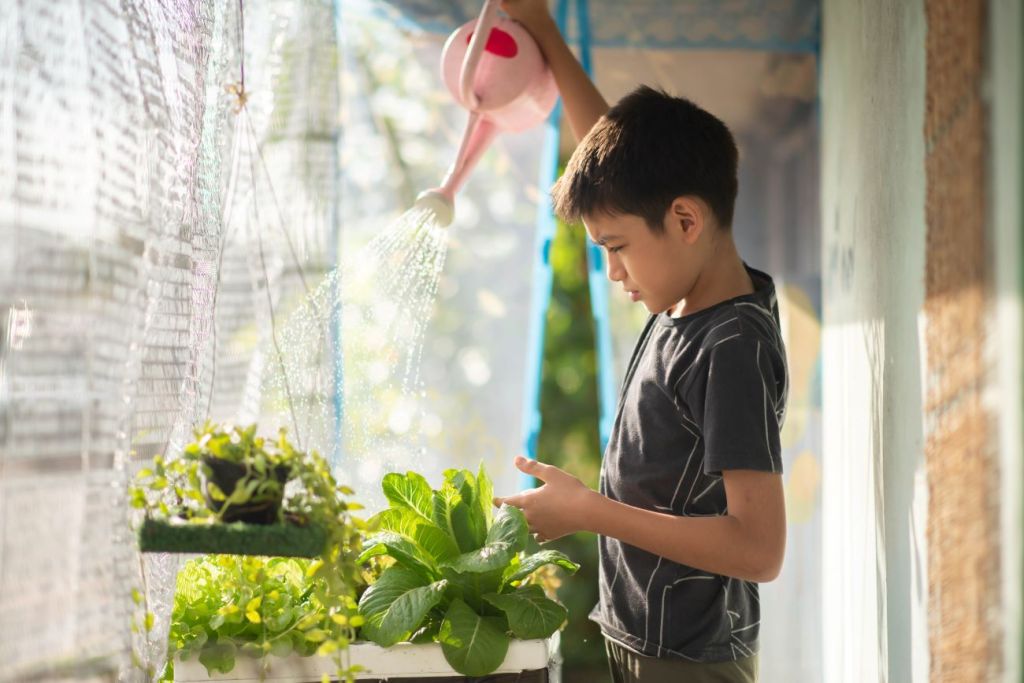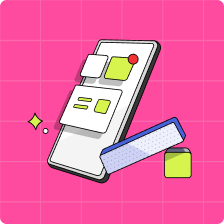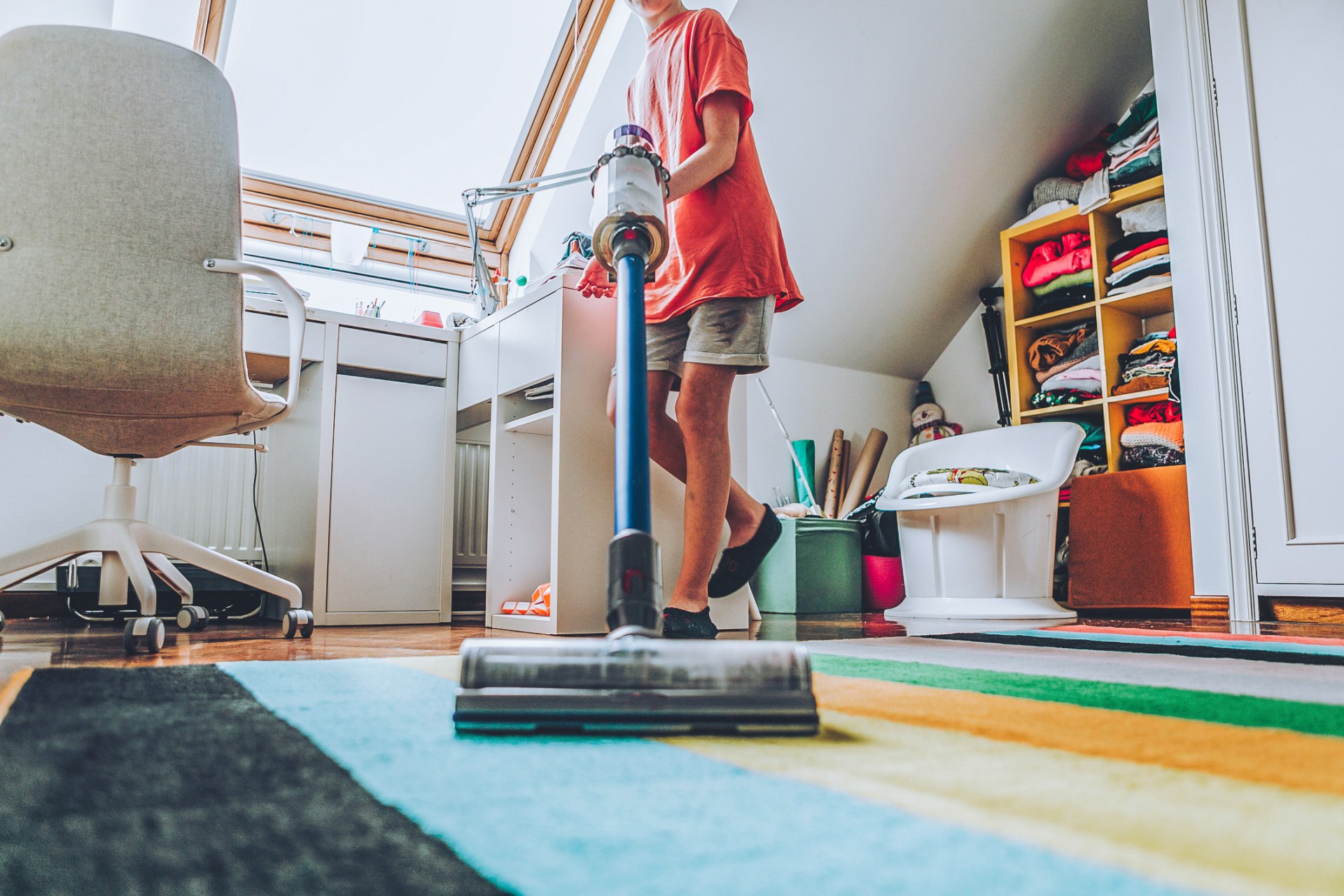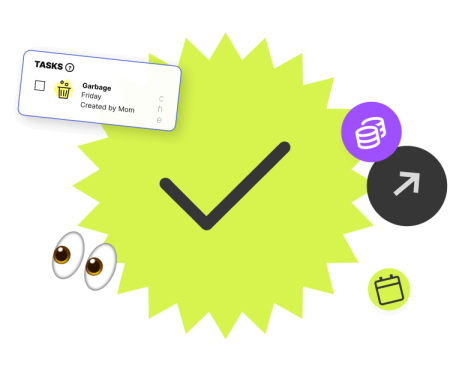Just when you think you’ve got your daily to-do list under control, you’re confronted with a whack of weekly household chores that also need doing. These are the tasks that can be forgotten day to day or pushed off until later, but still need to be tackled regularly.
You know who would be perfect for these jobs? Hint: They’re probably glued to their phones right now. Getting your tweens and teens to help out with weekly household chores not only frees up your time but also encourages them to take pride in their home. Plus, chores are a great way to teach kids accountability and money management.
Here’s how to identify what chores need to get done on a weekly basis, plus tips for managing a chore and allowance system for kids and teens in your home.
What are weekly chores?
If you’re used to doing all the chores yourself, it can be challenging to tease out the weekly tasks from the daily chores. Think about it this way: Weekly chores are the ones that don’t need to be done every day but still need to happen for your home to run smoothly. Laundry, dusting, and yardwork are good examples.
Assigning kids these bigger jobs, which often require more time and effort than everyday chores, is a great way to increase their responsibility as they grow older. When you clearly identify these weekly tasks, it’ll be easier for your tweens and teens to successfully get them done. It also helps them understand how much work goes into maintaining a home and that if all family members pitch in, it can get done a lot quicker.
Having these added duties can also boost your kids’ self-esteem, encourage them to be more responsible, and help them deal better with frustration.
Learn more: 10 life skills that chores can teach kids and teens.

How to assign weekly chores
Make sure you assign age-appropriate chores to your kids and teens to set them up for success. For example, your tween may not be ready to mow the lawn on their own, but they can do other yardwork like raking, weeding, and helping with the garden.
Hopefully, your tweens and teens have already been helping out with some daily duties, which they can continue to do. But as they mature, you can add the bigger weekly tasks to their lists as well.
You’ll need to provide direction and guidance as kids learn how to do more intensive chores properly and safely. Start by showing them how to do a specific chore and encouraging questions. You could do the job together the first time and then leave them to do it on their own. Don’t forget to provide some encouraging feedback after they’re done.
If you’re assigning jobs to siblings, take each one’s preferences into account. Say one kid enjoys yardwork and another prefers to clean—you might as well play to their strengths. Otherwise, just rotate the chores, so no one complains that they’re always doing the “worst” ones.
Use our allowance worksheet for kids to help assign weekly chores and how much they should be paid.
Managing weekly chores and allowance
After identifying and assigning the chores, you need to hold your kids accountable for actually doing them. There are many chore charts and calendar options available, as well as the Mydoh app.
With Mydoh, you can make any task a weekly chore. Once you’ve set up your kids’ chores in the app, you don’t have to keep reminding them of what needs to be done. Nagging is no fun for anyone! Mydoh lets them keep track of what tasks they’ve completed and get paid for them on Pay Day. Plus, it helps them understand that they only earn their full allowance by accomplishing all of their chores. It’s also a fun way for kids to see how much they’re earning.
Want to know more about chore-based allowance structures? Read our Guide to Giving an Allowance to Kids & Teenagers.
The best weekly chores for kids and teens
You can organize daily chores and weekly chores by categories such as deep cleaning, outdoor tasks, and tasks that help keep the home in order. Here are some sample chore lists for weekly tasks.

Weekly chores related to deep cleaning
- Clean behind large appliances
- Mop floors
- Vacuum the house (such as bedrooms, hallway, stairs, living room)
- Vacuum the furniture
- Clean refrigerator shelves, drawers and door (inside and out)
- Clean the bathroom (such as sink, mirror, floor, tub and/or shower, toilet)
- Dust the living room, bedrooms, and office area
- Wash windows
- Wash walls
- Wipe baseboards
Weekly outdoor chores
- Gardening
- Landscaping (such as raking, weeding, spreading mulch)
- Wash car
- Vacuum car
- Mow the lawn
- Clean outdoor furniture
- Trim hedges
- Pick up dog poop in the yard
- Help clean the gutters

Weekly chores that help keep the home in order
- Organize bookshelves
- Organize drawers
- Organize the food in the pantry
- Organize the garage
- Take out the trash and recycling to the street; pick up or load into the car to take to the transfer station
- Babysit younger siblings
- Laundry (including folding and putting away clean laundry)
- Bathe pets
- Change and wash bed sheets
- Water indoor plants
- Gather unwanted items to donate or sell
Discover how to create household chores for the whole family with our Guide to Household Chores for Teenagers & Kids
Mydoh helps parents track chores with complete oversight
Giving your kids the added responsibility of doing weekly house chores is helpful for everyone in the family. And tying the tasks to allowance gives you the opportunity to introduce conversations about money and spending. Using a chore app like Mydoh helps you organize and track chores, pay out allowance, and oversee your kids’ spending all in one app. It also gives them an understanding of how money works by providing hands-on experience for earning and spending.
Download Mydoh to help your family build a chore-based allowance system, and start the conversation about financial literacy with your kids and teens at home.
This article offers general information only and is not intended as legal, financial or other professional advice. A professional advisor should be consulted regarding your specific situation. While the information presented is believed to be factual and current, its accuracy is not guaranteed and it should not be regarded as a complete analysis of the subjects discussed. All expressions of opinion reflect the judgment of the author(s) as of the date of publication and are subject to change. No endorsement of any third parties or their advice, opinions, information, products or services is expressly given or implied by Royal Bank of Canada or its affiliates.







